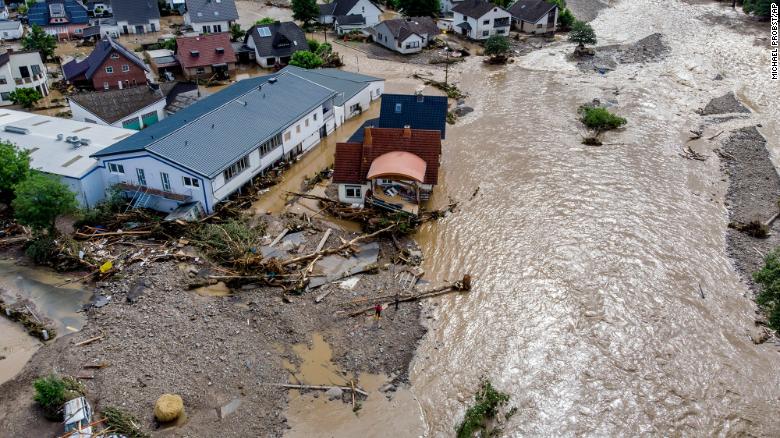 Addis Ababa, July 16, 2021 (Walta) – About 1,300 people remain unaccounted for in Germany after the heaviest rainfall in a century caused deadly flash floods to devastate parts of Western Europe, prompting a large-scale rescue effort.
Addis Ababa, July 16, 2021 (Walta) – About 1,300 people remain unaccounted for in Germany after the heaviest rainfall in a century caused deadly flash floods to devastate parts of Western Europe, prompting a large-scale rescue effort.
Fast-moving torrents of water inundated entire towns and villages in western and southern Germany, causing buildings to collapse and leaving residents stranded, police said Thursday. At least 55 people have died in the severe flooding but authorities said that number is expected to rise.
Germany is the worst hit with 49 dead, while six people died in Belgium. Luxembourg and the Netherlands are also affected.
In Germany’s worst-hit Rhineland-Palatinate state, 1,300 people are “assumed” missing in the district of Ahrweiler, the local government said.
“In some areas, we have not seen this much rainfall in 100 years,” Andreas Friedrich, a German weather service spokesman. He added that “in some areas, we’ve seen more than double the amount of rainfall which has caused flooding and unfortunately some building structures to collapse.”
Along with Rhineland-Palatinate, the German regions of North Rhine-Westphalia and Saarland were worst affected, Friedrich added.
Extreme rainfall totals were observed Wednesday into Thursday morning across much of western Germany and the Benelux region, with North Rhine-Westphalia and Rhineland-Palatinate seeing the highest rainfall totals, according to CNN meteorologist Brandon Miller.
Widespread swaths of these states saw 24-hour rainfall totals between 100 and 150 millimeters (3.9-5.9 inches), which represent more than a month’s worth of rainfall in this region.
Cologne recorded 154 millimeters (6 inches) of rainfall in only 24 hours ending Thursday morning, which is nearly double its monthly average for July of 87 millimeters (3.45 inches).
Locally heavier downpours resulted in extreme flash flooding. In Reifferscheid, an incredible 207 millimeters (8.1 inches) of rain fell in only nine hours, according to the European Severe Weather Database.